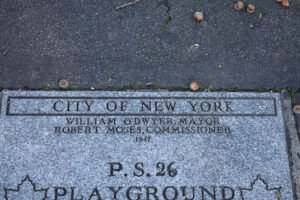May 18, 2015; New Orleans Times-Picayune
It’s been almost 10 years since Hurricane Katrina devastated the Gulf Coast. On May 18th, the U.S. Supreme Court ended another chapter in the story of how the New Orleans school system was reformed when it declined to hear an appeal from 7,500 teachers and school workers who were laid off as Orleans Parish Schools System struggled to reopen.
The floodwaters left behind a city in ruins, with many school buildings unusable and the residents of New Orleans scattered across the country. Local, state, and federal officials saw this as a chance to improve a problem-plagued school system. The tragedy of the storm offered the opportunity, reformers said, to make big changes that would give the children the education they deserved.
Just weeks after the storm, officials turned the majority of city’s schools over to the state-run Recovery School District (RSD), which had been formed in 2003 to take over the city’s worst schools. With teachers scattered and schools shuttered for the 2005 fall term, the school district discharged the 7,000 employees who had answered to it prior to Katrina, effectively nullifying the system’s contract with United Teachers of New Orleans.
Sign up for our free newsletters
Subscribe to NPQ's newsletters to have our top stories delivered directly to your inbox.
By signing up, you agree to our privacy policy and terms of use, and to receive messages from NPQ and our partners.
The laid-off employees’ suit charged that the Orleans Parish School Board did not follow proper procedures when it laid them off and that the state Recovery School District should have given them priority in hiring. When the case was initially heard in 2012, the plaintiffs prevailed, with the Louisiana Civil District Court awarding damages estimated at $1.5 billion. In 2014, a Louisiana Appellate Court upheld the lower court’s decision. But in February, the Louisiana Supreme Court overturned both lower court decisions and rejected the fired teachers’ claims. Monday’s decision by the U.S. Supreme Court not to hear an appeal of the State Supreme Court’s ruling seems to have brought the teachers’ case to an end.
But maybe not. Willie Zanders, the teachers’ attorney, said he will turn to the executive branch and Congress to investigate the possible misuse of $500 million in post-Katrina grants to the schools. At the time, Louisiana Education Superintendent Cecil Picard based his request on the need to pay school staff, Zanders said. But trial judge Ethel Simms Julien of Orleans Parish Civil District Court said in her decision that the state “diverted these funds to the RSD.”
In the best-case scenario, Zanders says, Congress would require Louisiana to repay the money to the federal government, then pass legislation directing the money to the laid-off school employees.
“You don’t quit after 10 years. If you believe in something, you fight. Justice has no time deadline—or we’d still be in slavery,” Zanders said. —Martin Levine












